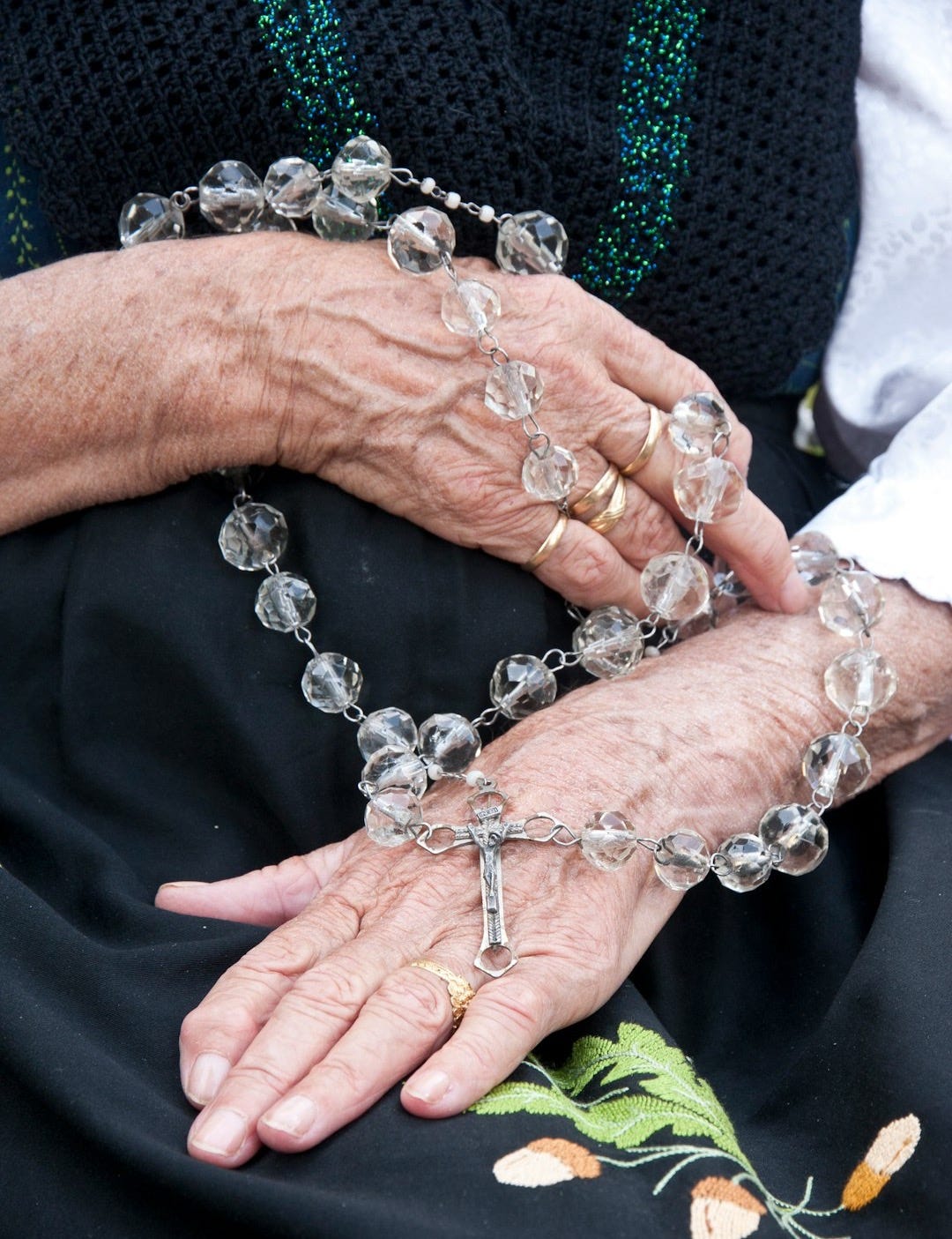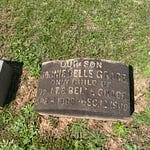Welcome to the second installment of our new series for Women’s History Month Series. We know Moses as Israel’s great rescuer, but even he had to be rescued by his wife. Below, we explore what Zipporah and the women of the Exodus teach us about deliverance, delivery, and our role as God’s midwives.
Anchor
[The LORD told Moses,] “Then say to Pharaoh, ‘This is what the LORD says: Israel is my firstborn son, and I told you, “Let my son go so that he may worship me.” But you refused to let him go; so I will kill your firstborn son.’”
At a lodging place on the way, the LORD met Moses and was about to kill him. But Zipporah took a flint knife, cut off her son’s foreskin, and touched Moses’ feet with it.[“Surely you are a bridegroom of blood to me,” she said. So the LORD let him alone. (At that time, she said “bridegroom of blood,” referring to circumcision.) — Exodus 4:22-26
Sea
* Many thanks go to Pastor Howard-John Wesley of Alfred Street Baptist Church in Alexandria, VA, and Pastor Steve Elkins of Grace Community Church in Corsicana, TX, for their sermons, which profoundly influenced this newsletter. Their teachings have helped me recognize women’s often overlooked but significant contributions to the Exodus story.
When we think of Moses, we see him as the Great Deliverer of Israel. But God delivers Moses five times by the hand of six different women, all before ol’ boy utters his first “Let my people go.” Don’t Believe me?
Puah and Shiphrah, the midwives, devise a plot to defy Pharoah and save the Hebrew baby boys from state-sponsored genocide.
Moses’ mother, Jochebed, successfully delivers him, discerns a special call on his life, and floats him down the Nile in a basket to avoid Pharoah’s detection.
Pharoah’s daughter, Bithyah, rescues Moses from currents and crocodiles and raises him as her own son in the lap of Egyptian luxury.
Bithyah needs a wet nurse for the child. Miriam, Moses’ sister, suggests none other than Moses’ own biological mother, reuniting her family and ensuring that Moses understands his Jewish identity, all while getting her momma paid $$.
Zipporah stands in the gap and intercedes for a disobedient Moses in front of an angry YHWH—a tactic we see Moses copy in Exodus 30.
Thus, before Moses can deliver anyone, he must first be delivered. Zipporah’s valiant intercession on behalf of her family illustrates some unique insights that deserve further study.
Zipporah Comes to the Rescue

So let’s recap: After God speaks to Moses in the burning bush, He tells Moses to go back to Egypt and implement God’s plan to rescue the Israelites from slavery in Egypt. In Exodus Chapter 4:17, Moses is pregnant with this calling. But by verse 23, he’s about to miscarry.
In one of the most bizarre twists in Scripture, Exodus says, “At a lodging place on the way, the Lord met Moses and was about to kill him.” Apparently, God is considering an abortion; he’s about to put His newly chosen deliverer to death.
Why?
Moses fell into the trap of so many men. He is called to deliver Israel, “God’s firstborn son,” but Moses has forgotten his own son. As a Jewish man, it was his job to circumcise his sons, preferably on the 8th day after their birth. However, Moses hasn’t done this. He wants to bring a nation into a new covenant with God, a covenant his son won’t be a part of because Moses failed to carry out his fatherly responsibility.
No doubt, Moses’ oversight/deprioritization wasn’t lost on Zipporah. Zipporah wasn’t Jewish. Nevertheless, she knew that Jewish identity was based on two things: the identity of one’s mother as a Jew and/or circumcision. With Zipporah being a Midianite and without Moses circumcizing their sons, her children had no part in the people of God—and thus had no part in Moses’ future or his future calling.
Husbands, you know how wives are. This was probably not the first, second, or third time Zipporah asked Moses to circumcise their son. I surmise this from the speed and precision with which Zipporah acts to appease the wrath of God.
Moses is struck by God, and without even a conversation, Zipporah steps in as a deliverer, circumcising their son and saving Moses from the wrath of God. Zipporah had rightly perceived God’s heart in her heart. She discerned that God had the same care for her family as she did. And she knew integrity was missing from Moses’ ministry. How was he going to represent God as the loving father of the nation of Israel when he was missing fatherly care for his own children? How could he help fulfill God’s promise to Abraham, the original father of Israel, when Moses had forsaken the sign that God had given Abraham of that very promise?
Moses lost sight of things. He saw his future public calling as more important than his personal calling to his family. God didn’t agree. And neither did Zipporah.
In failing to carry out his responsibility to those closest to him, Moses puts himself and his loved ones in danger, forcing Zipporah to act in his stead. Something she did in a heartbeat but, as Pastor Steve Hayes pointed out, probably resented.
Though Zipporah was not the one who was supposed to circumcise—she carried out her role as Mozes’ ezer kenegdo, his Rescuing Help, anyway. (Note that the name Zipporah is the Hebrew word for ‘bird.’ In the New Testament, the symbol of the Holy Spirit is a dove. Just another example of last week’s connection between the role of women and that of the Holy Spirit.)
(En)gendering Wisdom: Honoring the Women of Scripture for Women's History Month
Explore the striking similarities between the work of the Holy Spirit and the role of women.
Moses and Zipporah both function as rescuers, and one could argue that Zipporah has the more courageous faith. Moses stood before an angry monarch, but Zipporah was the one who saved Moses from an angry God. Who can rescue anyone from God’s wrath? Who would even dare stand before the Holy One and plead for mercy? Jesus comes to mind.
For her obedience, God honors Zipporah, just as he honored the other women who worked deliverance in Moses’ story. God established the midwives as heads of prosperous families of their own; Miriam became one of Israel’s leaders and prophets; in the Jewish tradition, Pharoah’s daughter became a believer in YHWH and is saved alongside the Israelites; Zipporah and her sons were not left behind in Midian but were graphed into the house of God. When we look at their stories, we see that God’s work was never limited to just one man.
Delivery as the Beginning of Deliverance

Both men and women are integral to God’s work of liberation, which is etymologically related to the word deliverance. But for most of my life, I heard about deliverance as a (primarily male-driven) political action involving a whole nation, forgetting about the word’s other meaning of delivery, the bodily action of giving birth to another person.
Deliverance vs. delivery, public vs. private, political vs. intimate, what we consider acts of justice vs. what we consider acts of love—we’ve set up an unbiblical dichotomy and wrongly believed we could accomplish the former at the expense of the latter.
Deliverance originally referred to childbirth, and this is especially important because, according to Scripture, collective, public deliverance does not happen without personal and intimate delivery. “I tell you the truth,” Jesus says to the religious teacher in the 3rd chapter of John’s gospel, “no one can enter the kingdom of God unless they are born of water and the Spirit. Flesh gives birth to flesh, but the Spirit gives birth to spirit.” God works from inside out, from unseen to seen, from seed to fruiting tree, from singular to diversified.
A clear illustration of this: The Old Testament’s foundational story of political deliverance begins with a pair of midwives and their deliveries.
Puah and Shiphrah assisting women with individual births was the first time Hebrew people experienced rescue from Pharoah’s tyranny. Without the actions of these midwives, there might not have been a people to deliver.
God’s vision for collective deliverance, what some might call liberation, is accomplished through individuals. God’s blessings are often given to a single person but usually include others: “I will make you a father of nations, and all the peoples of the world will be blessed through you.” Like the adage of the Black church, we are blessed to be a blessing.
God acts through individuals. When God wants to deliver the world from man’s wickedness, He calls one man, Noah, and his family, who then recruit individual representatives of each species and gender onto the arc. When God wants to bless the entire world, He starts with one man and one woman, Abram and Sarai. These become the father and mother of the faith. When God wants to rescue the world from famine, He raises up one son of Jacob, Joseph. And when God wants to deliver the world from sin, He uses one mother and child.
God’s ultimate plan for redemption concerns all of us but He must first accomplish it in each of us.
We are God’s Midwives

In a post-modern era, we rightly question the lone hero narrative. But this is because we have lost the central context for the Biblical understanding of a hero. Biblical narratives cannot be read through the stoic Greek lens of personal integrity or moral character.
All heroes of faith are merely witnesses designed to point to the real main character of the story: God.
God calls old men and barren women, sex workers and murderers, cowards and hotheads, not to lift them up as the glorious exception but to lift God up as the most creative, loving, and powerful being worthy of praise. If God worked through whole people groups, we would be tempted to put our trust in majorities, culture, political organizing, monetary resources, philosophy, or cunning statecraft. I think God prefers to work through individuals— failed and imperfect individuals like Moses—so that it is clear that real liberation is His doing and His alone.
From the stories of the women God uses to save His children, we learn that deliverer is just another word for midwife. After all, it is God—not Moses—who truly delivers Israel. As the Mother of Israel, God labors, performing signs and wonders to rescue Her people— “I will deliver them with a mighty hand.” Moses plays the role of the midwife and is there to witness and assist God’s birth of Her firstborn son.
We know Moses saw God as Israel’s mother. In a heated exchange, Moses exasperatedly says to God in Numbers 11:
“Did I conceive all these people? Did I give them birth? Why do you tell me to carry them in my arms, as a nurse carries an infant, to the land you promised on oath to their ancestors?”
Pastor Wesley first brought my attention to this. Moses struggles with the maternal aspect of being a deliverer—a role that Jesus pined for in Matthew 23:37: “Oh Jersualem, Jerusalem… how often I would have gathered you like a mother hen gathers her chicks under her wings, but you would not come.”
Ultimately, though, Moses learns about the midwiving quality of a deliverer from some of the most skilled practitioners in Scripture. Each of these women was an individual expression of God’s character. God collected their faith and obedience into the plan She would use to free Her children from slavery and ultimately birth a people who would one day believe in Her name.

Verily,
Alysia Nicole Harris
Sail
The sail for this week is an invitation. Consider the women in your life who have been deliverers, defying systems of oppression, confronting lovelessness, and interceding on your behalf with the ferocity of their faith. Write them a thank you. You can even send me a copy if you like! I’d love to read.











Share this post